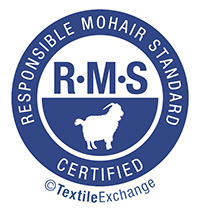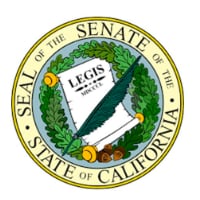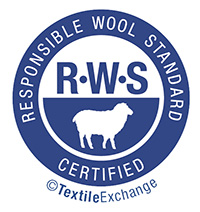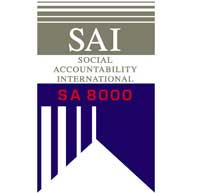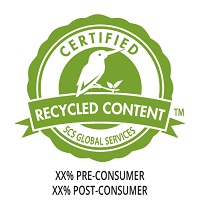Launched by Textile Exchange in March 2020, the Responsible Mohair Standard is based on the same system as the Responsible Wool Standard and monitors animal welfare practices at farm level via regular audits.
In March 2023, a Senate Bill was introduced in the US state of California aimed at creating a ‘first of its kind’ extended producer responsibility (EPR) textile recycling and repair programme.
Senator Josh Newman introduced SB 707, which would require producers of clothing and other textiles to implement and fund a state-wide collection and recycling programme for textiles. However, the Bill has now been delayed until 2024 due to mounting concerns as the bill progressed. It has therefore been withdrawn from the Assembly Natural Resources Committee.
What is it?
The Bill would establish an Extended Producer Responsibility (EPR) program for textiles under the regulatory authority of the California Department of Resources Recycling and Recovery (CalRecycle).
The intention is to enhance recycling and reuse of textiles through an EPR funded and implemented by the industry.
Key elements
In establishing the EPR, the bill would require producers, as defined, to fund, design, and implement the program for collecting, sorting, and recycling textile articles under CalRecycle’s oversight.
Program operators — either a single producer or stewardship organisation consisting of a group of producers — would have to submit a complete stewardship plan, including specified data and information, to CalRecycle for review and approval.
There is also an annual report. Additionally, SB 707 would require CalRecycle to adopt regulations to govern this program, effective December 1, 2025, at the earliest.
Under SB 707, producers must:
- Establish and implement a stewardship program independently, or as part of a group of producers through membership in a stewardship organization
- Notify all persons through which it is selling, distributing, importing, or offering for sale a covered product in or into the state for sale in or into the state whether it will comply with this chapter individually or through a stewardship organization
- Provide to the department (CalRecycle) each year a list of covered products that the producer sells, distributes for sale, imports for sale, or offers for sale in or into the state
Similarly, program operators must meet a large list of requirements, including:
- Establish a method for fully funding the stewardship program in a manner that equitably distributes the stewardship program’s costs among participating producers that reflects production and sales volumes
- Develop and submit to the department a complete stewardship plan, which itself is required to include an extensive list of data and analysis, within 12 months of the adoption of regulations
- Draft and submit detailed annual reports
The stewardship plan’s requirements alone are extensive and burdensome — calling for an array of information from financial and product data to education and outreach planning descriptions on how the operator will provide collection containers, support nonprofit entities, fund infrastructure development, and reduce environmental impacts. Much of this required information would be on topics and planning that is outside the operator’s typical area of expertise. Additionally, complying with these requirements may place additional costs on local California businesses — costs those competitors elsewhere, and particularly overseas, may not have to bear.
Key concerns
However, with a number of concerns as the bill progressed, SB 707 was withdrawn from the Assembly Natural Resources Committee, where it was scheduled to be heard.
This mean that SB 707 did not progress in 2023 in a bid to give stakeholders more time to work together on crafting a statewide textile recycling program.
These concerns include:
- Important definitions are extremely broad and cover a wide array of textile products. The bill defines “covered product” as any postconsumer apparel or postconsumer textile article that is unwanted by a consumer.
- Small businesses in California may be at a disadvantage. The burden of compliance may be placed predominantly on entities located in California — producers, importers, and distributors located in the state.
- Online foreign retailers delivering direct to consumer are not covered. In the case of fabric sold by the bolt, 99% of this material is imported from foreign countries via online retailers that are unlikely to comply.
- No proof of concept. In 2022, the California legislature passed, and the governor signed, SB 1187, which is a fabric recycling pilot project to be located in Los Angeles and Ventura counties. The legislature did not appropriate funding for this project, and as such, it has not yet been carried out. Therefore, there is no proof of concept that the infrastructure exists to carry out an EPR at scale statewide, what will be best practices, or what are problems that need to be resolved.
- Liability due to existing state law regarding chemical constituents. In recent years, California has passed numerous laws regulating or banning products from containing certain chemicals. For example, the group of chemicals known as PFAS have been regulated in various consumer products — including textiles.
- The regulatory capacity to oversee the program may be limited. Overseeing SB 707 compliance will increase the workload for CalRecycle, which is already in the process of establishing and implementing another new EPR program for plastics packagingrequired by SB 54, which was passed and signed into law last year.
- Requirements on producers and program operators are extensive and burdensome. SB 707, like other extended producer responsibility bills that have been considered or passed in California, defines producer to include not just manufacturers, but also licensees, distributors, sellers, importers, and more.
Next Steps
As a two-year bill, SB 707 can be reconsidered in the 2024 legislative calendar. Over the next few months, we expect Senator Newman and his staff, along with the California Product Stewardship Council as the bill’s sponsor, to conduct robust stakeholder engagement with industry, retailers, nonprofits, and others to revise and amend SB 707 such that it is more fit for its intended purpose — to enhance recycling and reuse of textiles, as specified.
Last update: 29/11/23
The Responsible Wool Standard (RWS) is a voluntary standard that addresses the welfare of sheep and the land they graze on in a bid to help sheep farmers meet consumer, retailer and brand demands on animal welfare and land management.
SA8000 is a widely recognised social certification standard that ensures decent labour conditions and protects the basic human rights of employees across all industrial sectors.
The Science Based Targets Initiative (SBTi) originally aimed to secure commitments from large companies to set science-based targets to reduce carbon emissions. In May 2024, the SBTi transformed itself into a voluntary standard-setter to enhance climate commitments.
SCS claims that its private Recycled Content Standard helps companies to demonstrate ‘leadership in reducing reliance on natural resources’, as well as to satisfy purchase requirements on pre- and post-consumer recycled content to meet regulations and differentiate products at point of sale.


